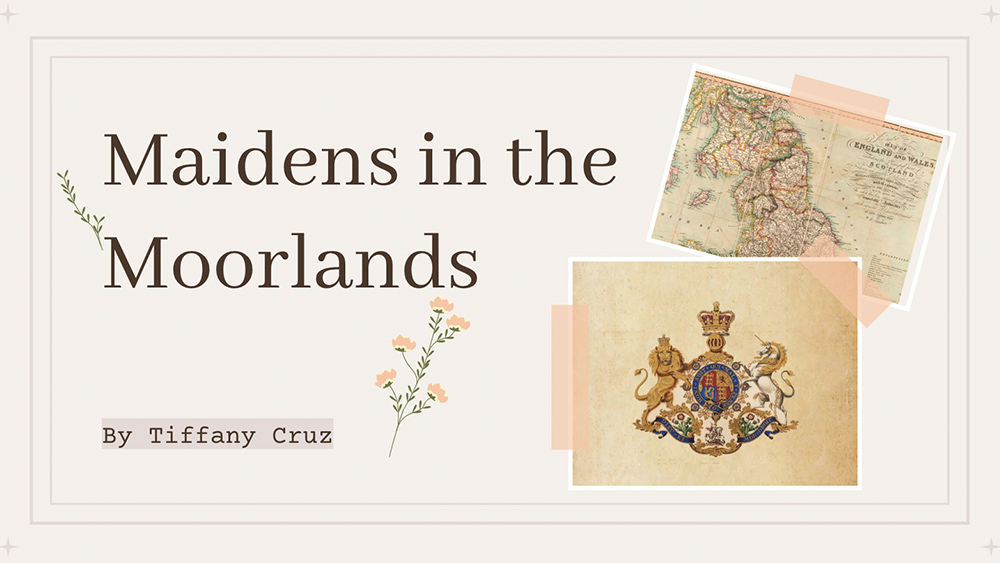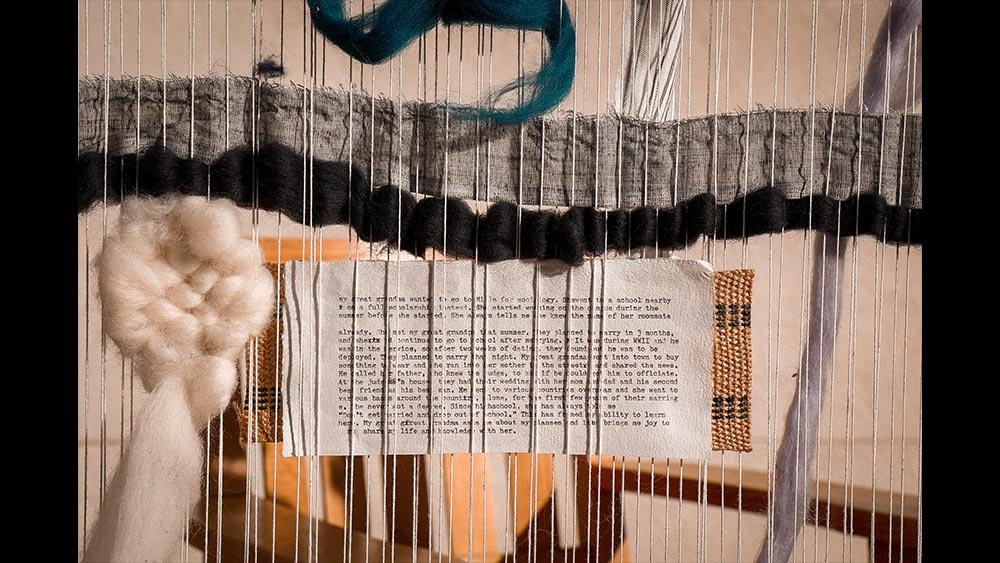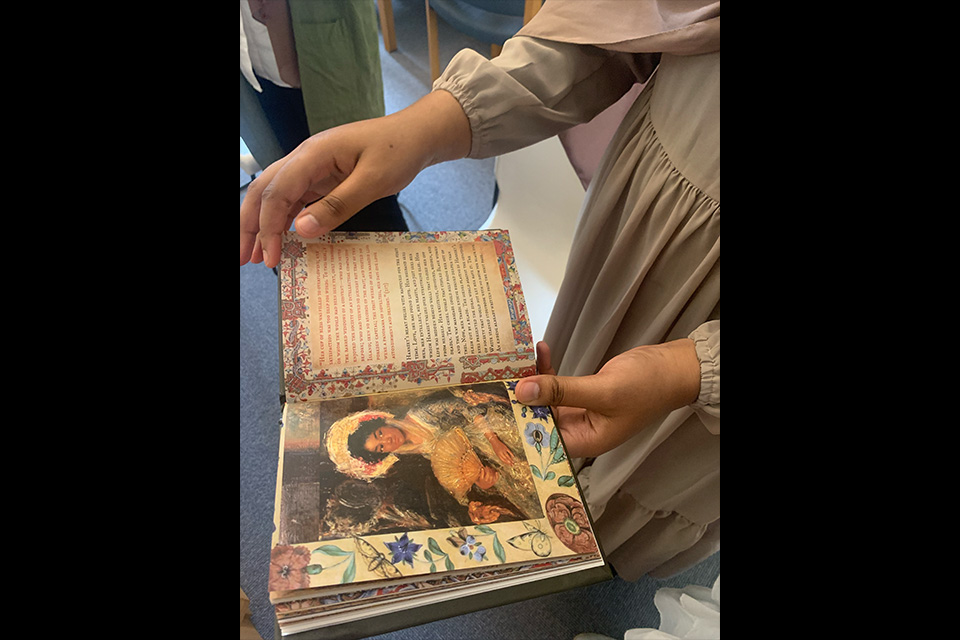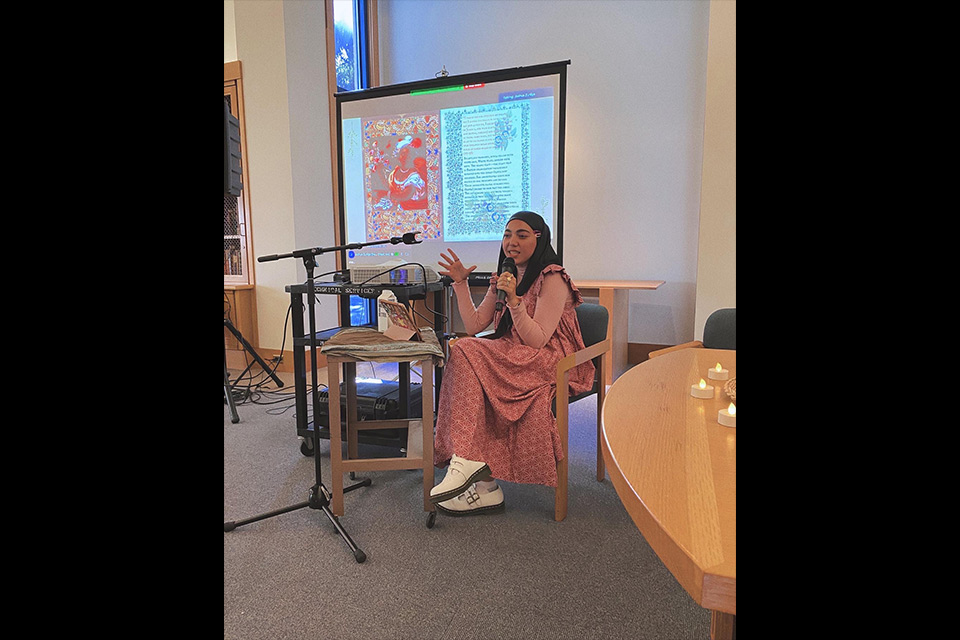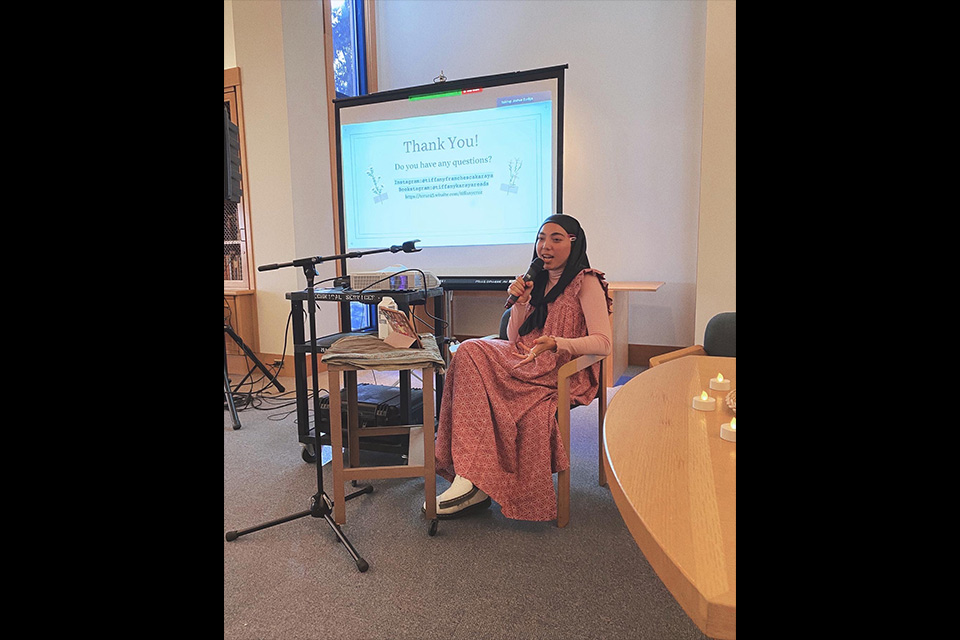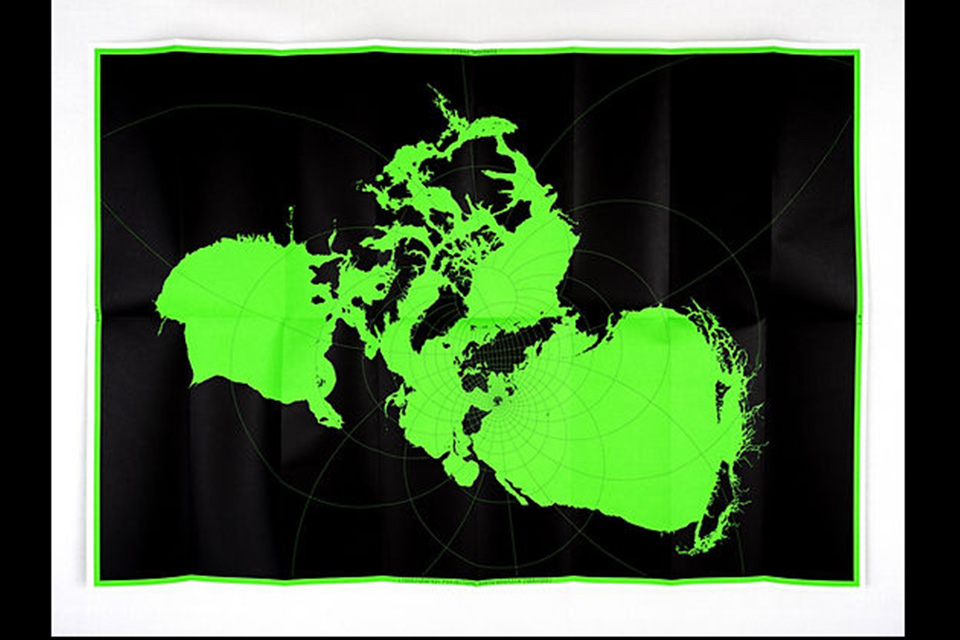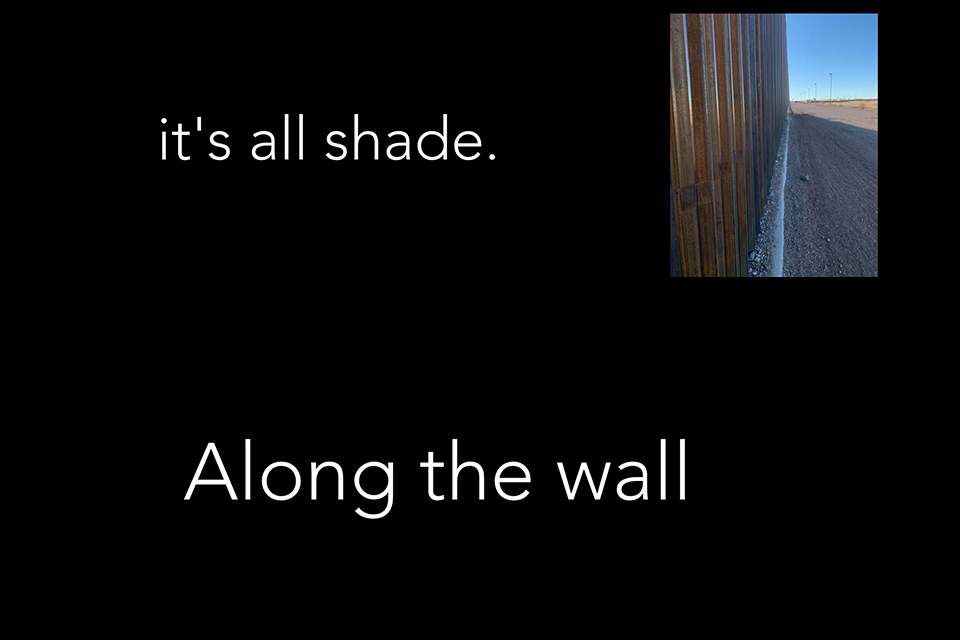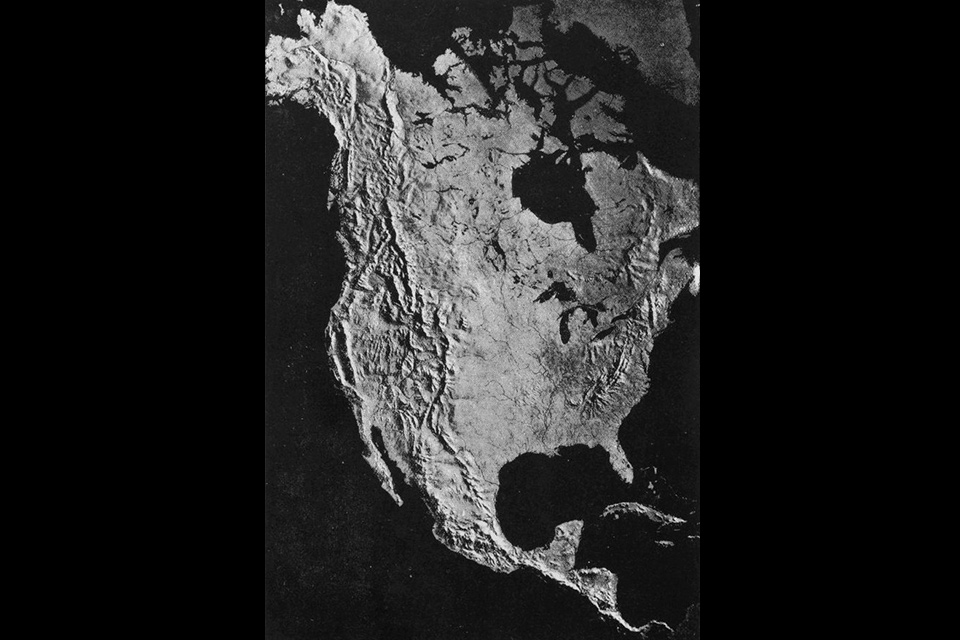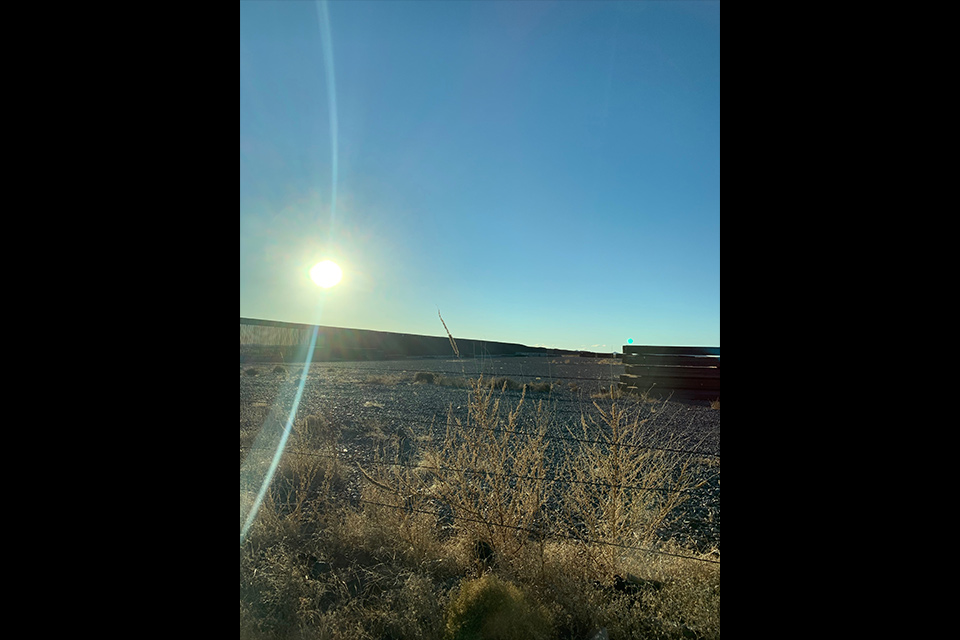Community Collaborators
The East Bay, Mills’ home, has long been the birthplace of crucial performance poetry collectives and publishing efforts, especially those aligned with racial and gender justice. Continuing the Mills tradition of experimentation in graduate and undergraduate education, We Are the Voices supports the development of innovative, even risky, ways of presenting poetry and scholarship in nonacademic settings. With the support and guidance of faculty advisor Stephanie Young, students design and implement public projects that explore the transformative power of literature in East Bay communities and beyond.
Current collaborators (2021-2022):
Tiffany Cruz
Maidens in the Moorlands: Black Women in 19th-Century British Literature
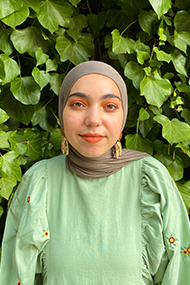 Tiffany Cruz presented her letterpress illuminated book project on April 22nd in the
Heller Room at the Mills College library. She compared two 19th-century British novels
whose protagonists are Black Women: the 1808 epistolary novel of manners, The Woman of Colour (Anonymous) and the 1897 fin-de-siecle Gothic sensation The Blood of the Vampire (Florence Marryat). In the illuminated book,Tiffany put these texts in conversation
with reproduced images of European artworks that centered upper class Black women;
these juxtapositions showcase how raced and gendered Eurocentric conceptions of selfhood
limited both lived and literary arcs for the Black woman, regardless of her financial
status. The project demonstrates the impossibility of even a fictional happy ending
for the Black woman in a country whose empire was based on racial capital. In her
lecture, she shared the inspiration behind her project, explained the aesthetic and
material choices she made in creating the physical book, and presented and analyzed
examples from the book itself. Tiffany’s lecture was followed by a Q&A with input
from the in-person and live stream audience.
Tiffany Cruz presented her letterpress illuminated book project on April 22nd in the
Heller Room at the Mills College library. She compared two 19th-century British novels
whose protagonists are Black Women: the 1808 epistolary novel of manners, The Woman of Colour (Anonymous) and the 1897 fin-de-siecle Gothic sensation The Blood of the Vampire (Florence Marryat). In the illuminated book,Tiffany put these texts in conversation
with reproduced images of European artworks that centered upper class Black women;
these juxtapositions showcase how raced and gendered Eurocentric conceptions of selfhood
limited both lived and literary arcs for the Black woman, regardless of her financial
status. The project demonstrates the impossibility of even a fictional happy ending
for the Black woman in a country whose empire was based on racial capital. In her
lecture, she shared the inspiration behind her project, explained the aesthetic and
material choices she made in creating the physical book, and presented and analyzed
examples from the book itself. Tiffany’s lecture was followed by a Q&A with input
from the in-person and live stream audience.
Caroline Gasparini
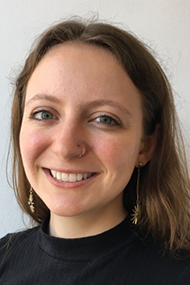 Caroline is developing a project that brings together LGBTQ+ poets, writers, and activists
impacted by the criminal justice system in conversation around how mass incarceration
affects the LGBTQ+ community. The goal is to produce an original journal of work that
imagines a radically just future beyond the confines presented by mass incarceration
and systemic inequities. The project seeks to catalyze discussion around mass incarceration,
LGBTQ+ rights, and the transformative social change that occurs when centering the
voices and stories of those most impacted by the issues at hand.
Caroline is developing a project that brings together LGBTQ+ poets, writers, and activists
impacted by the criminal justice system in conversation around how mass incarceration
affects the LGBTQ+ community. The goal is to produce an original journal of work that
imagines a radically just future beyond the confines presented by mass incarceration
and systemic inequities. The project seeks to catalyze discussion around mass incarceration,
LGBTQ+ rights, and the transformative social change that occurs when centering the
voices and stories of those most impacted by the issues at hand.
Zehra Shah
Decentering the Archive: Migration of Memory, Tradition & Identity
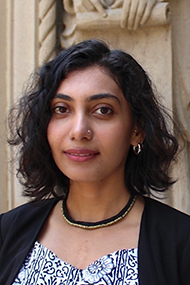 Zehra Jabeen Shah curated a 3-day exhibit, Decentering the Archive: Migration of Memory, Tradition & Identity. The project was decolonial in nature. It aimed to challenge and expand the notion
of what it means to be an ‘archive.’ It also questioned the politics of archival materials
within modern working museums. Working with 5 different artists, the exhibit explored
how archives journey from one space to another, encompassing a whole life of their
own. They are not merely passive objects neatly placed behind decorated cabinets,
but ones that grant life to legends, traditions, and bodies containing their own pasts
and emotional history. The artists she worked with were Andrea Guskin, Tianzong Jiang,
Ava Koohbor, Jesse Dutton-Kenny and Alice Lincoln-Kook.
Zehra Jabeen Shah curated a 3-day exhibit, Decentering the Archive: Migration of Memory, Tradition & Identity. The project was decolonial in nature. It aimed to challenge and expand the notion
of what it means to be an ‘archive.’ It also questioned the politics of archival materials
within modern working museums. Working with 5 different artists, the exhibit explored
how archives journey from one space to another, encompassing a whole life of their
own. They are not merely passive objects neatly placed behind decorated cabinets,
but ones that grant life to legends, traditions, and bodies containing their own pasts
and emotional history. The artists she worked with were Andrea Guskin, Tianzong Jiang,
Ava Koohbor, Jesse Dutton-Kenny and Alice Lincoln-Kook.
Tovah Strong
Perforations Journal
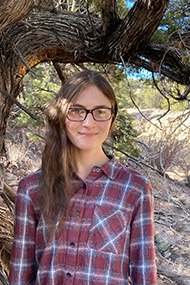 Tovah curated Perforations Journal, a digital multimedia project that attempts to examine and peel open abstractions
of borders--particularly the U.S.-Mexico border--and what lies beneath by bringing
visual poems, art, and maps into proximity. The journal presents original poems by
four contemporary writers, reprinted artworks, and one of many historical threads
of maps that depict North America with and without borders–from the 19th century to
the present. Perforations exists as a small opening into a large and complex conversation
that she hopes will encourage readers to expand their curiosity beyond the works that
the journal is honored to hold.
Tovah curated Perforations Journal, a digital multimedia project that attempts to examine and peel open abstractions
of borders--particularly the U.S.-Mexico border--and what lies beneath by bringing
visual poems, art, and maps into proximity. The journal presents original poems by
four contemporary writers, reprinted artworks, and one of many historical threads
of maps that depict North America with and without borders–from the 19th century to
the present. Perforations exists as a small opening into a large and complex conversation
that she hopes will encourage readers to expand their curiosity beyond the works that
the journal is honored to hold.
